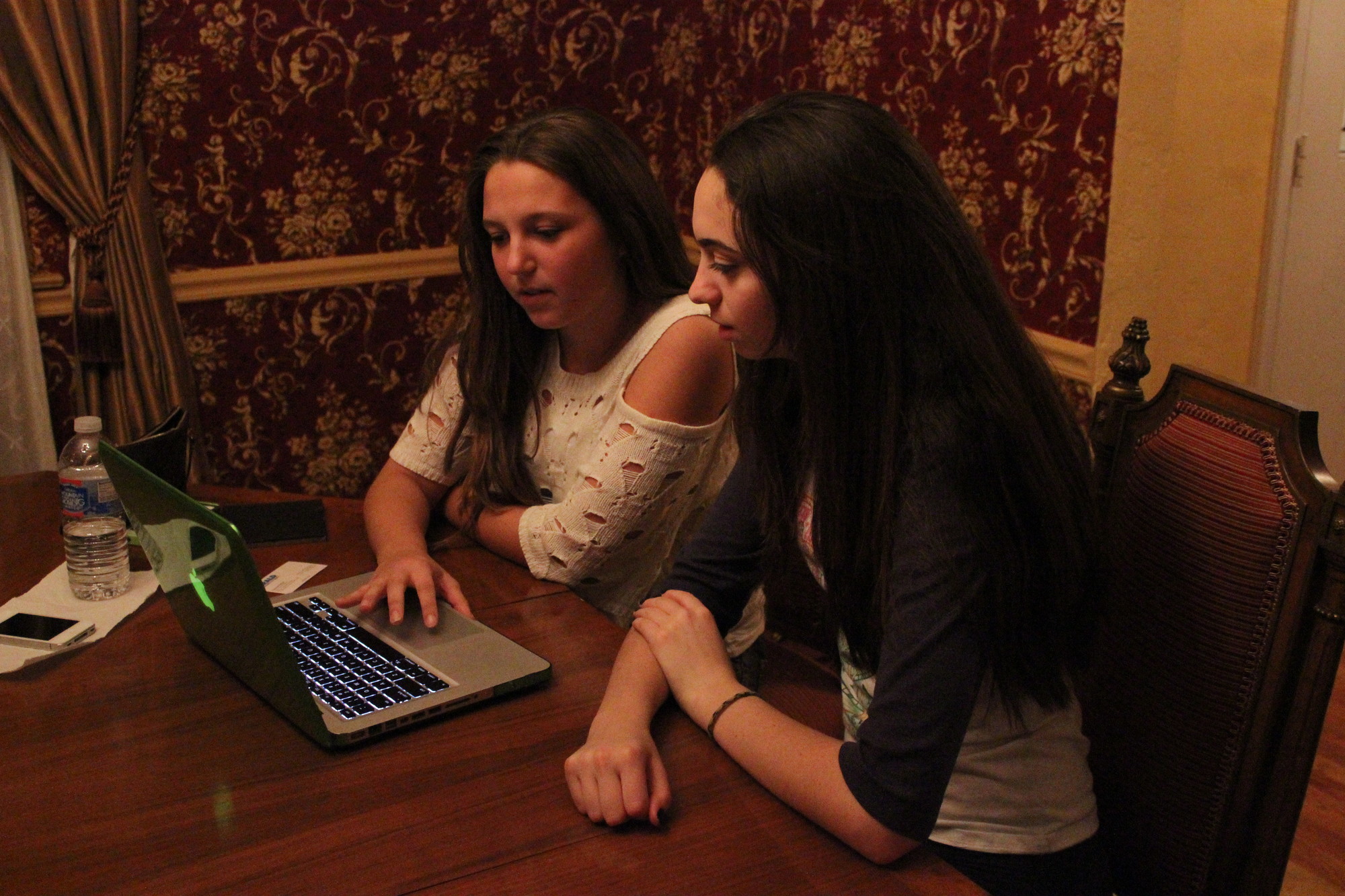Hewlett High students document history
Girls’ LGBT video takes first place, advance to state finals
Hewlett High School students Gillian Polakoff, a freshman, and sophomore Jolie Schornstein, collaborated to produce a 10-minute documentary about gay marriage rights, which won first place for their division at Hofstra University on March 9.
Polakoff and Schornstein are participating in a competition sponsored by New York State History Day and National History Day. Each annual competition revolves around a specific theme. This year’s is “Rights and Responsibilities in History.”
The video the girls produced was a result of joining the History Fair Club, an extracurricular club organized. It focuses on gay people’s right to marry, while referring to the landmark 1969 Stonewall riots in New York City that propelled the gay liberation movement forward.
“We’ve worked very hard in creating this documentary,” Polakoff said. “I hope that people will learn more about the Lesbian, Bisexual, Gay and Transsexual (LGBT) movement when they watch it. We hope to make people aware of what’s happening with them and what they go through.”
Polakoff has competed before at the junior level, winning a first place gold medal in 2012 and third place bronze medal in 2013 at the state level before, but hasn’t yet placed at the national level competition in Washington, D.C., she said.
The girls’ teachers and their school’s administrators are encouraged by their participation in the contest. “On February 4th, the students had to submit their proposals to enter the National History Day contest,” said Mark Secaur, Hewlett-Woodmere School District’s curriculum specialist. “I saw the variety of topics the students chose to cover. I was very impressed.”
The process involved in creating a documentary began with research, according to Schornstein. “We researched first at the library,” Schornstein said. “Then we wrote down ideas and important information. We used that for video clip ideas to use in our documentary, and people we could ask to interview on-camera. Then we wrote up a script to read on-camera.”
Getting the interviews was difficult, Polakoff said, but the pair persevered and overcame that initial reticence. “We called people over and over again to get them to let us interview them,” she said. “They finally agreed to do it. We wouldn’t give up. It was great to hear the professors and experts on camera when we finally interviewed them.”
People expressing their views no matter what others think of the opinion is something Schornstein appreciates. “It would be nice if people could be more open,” she said. “It would be great if more people felt comfortable and safe in sharing their views, whether or not people agree with them.”
Both girls said they enjoyed working together as each has their talents. “Gillian is really good at working with iMovie,” Schornstein said. “She’s good at looking at video clips and deciding which ones we should use. She’s great with technology.” “Jolie is good at writing scripts and editing,” Polakoff said. “She’s fun to work with, and smart.”
To learn more about the New York State competition, visit www.nyshistoryday.org, and for the national competition in Washington, D.C., visit www.nhd.org.

 39.0°,
Fair
39.0°,
Fair 




